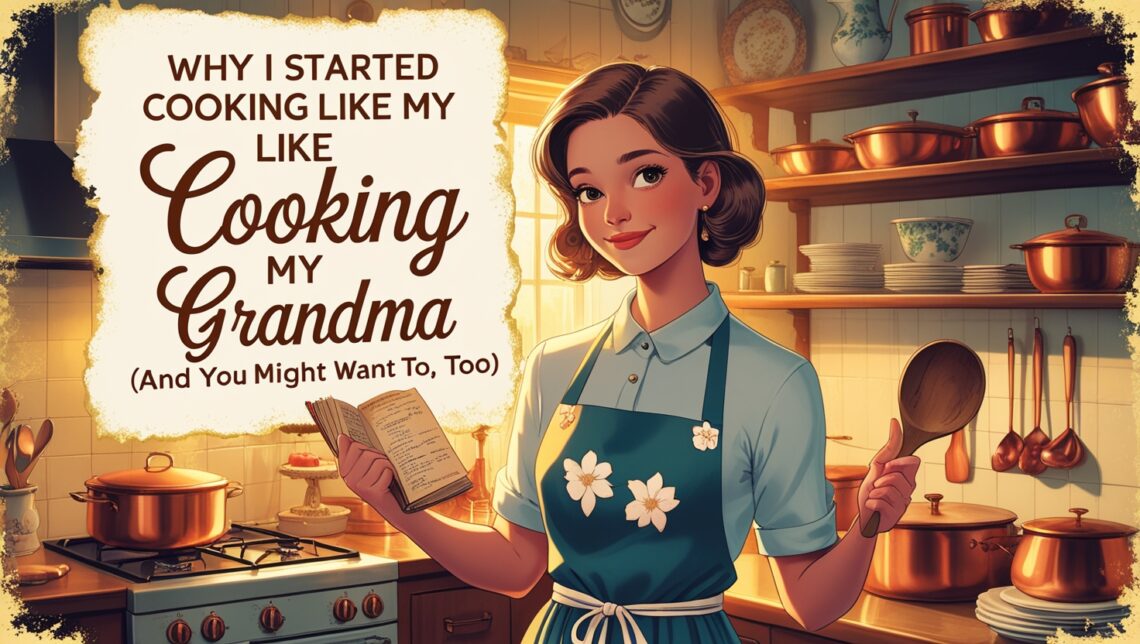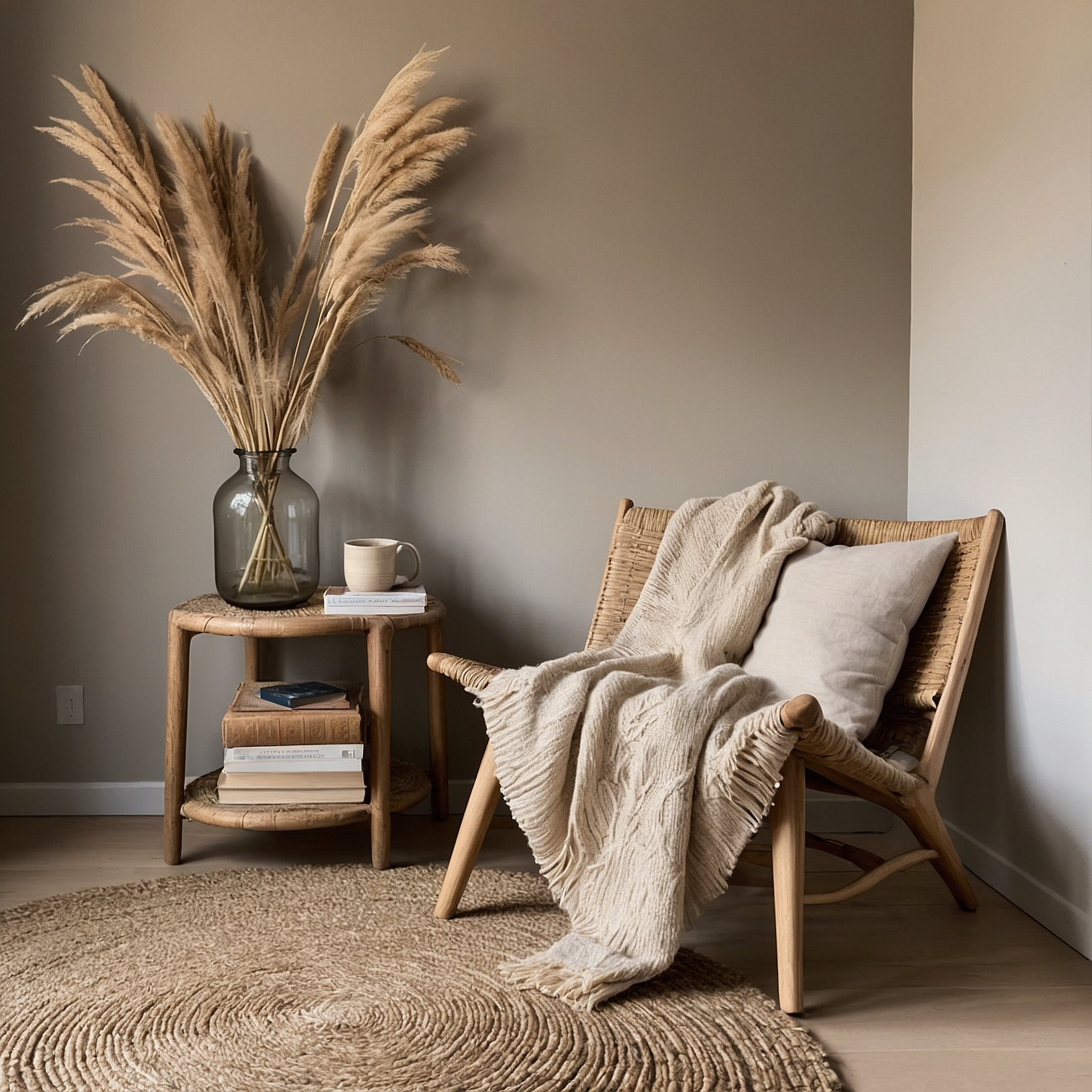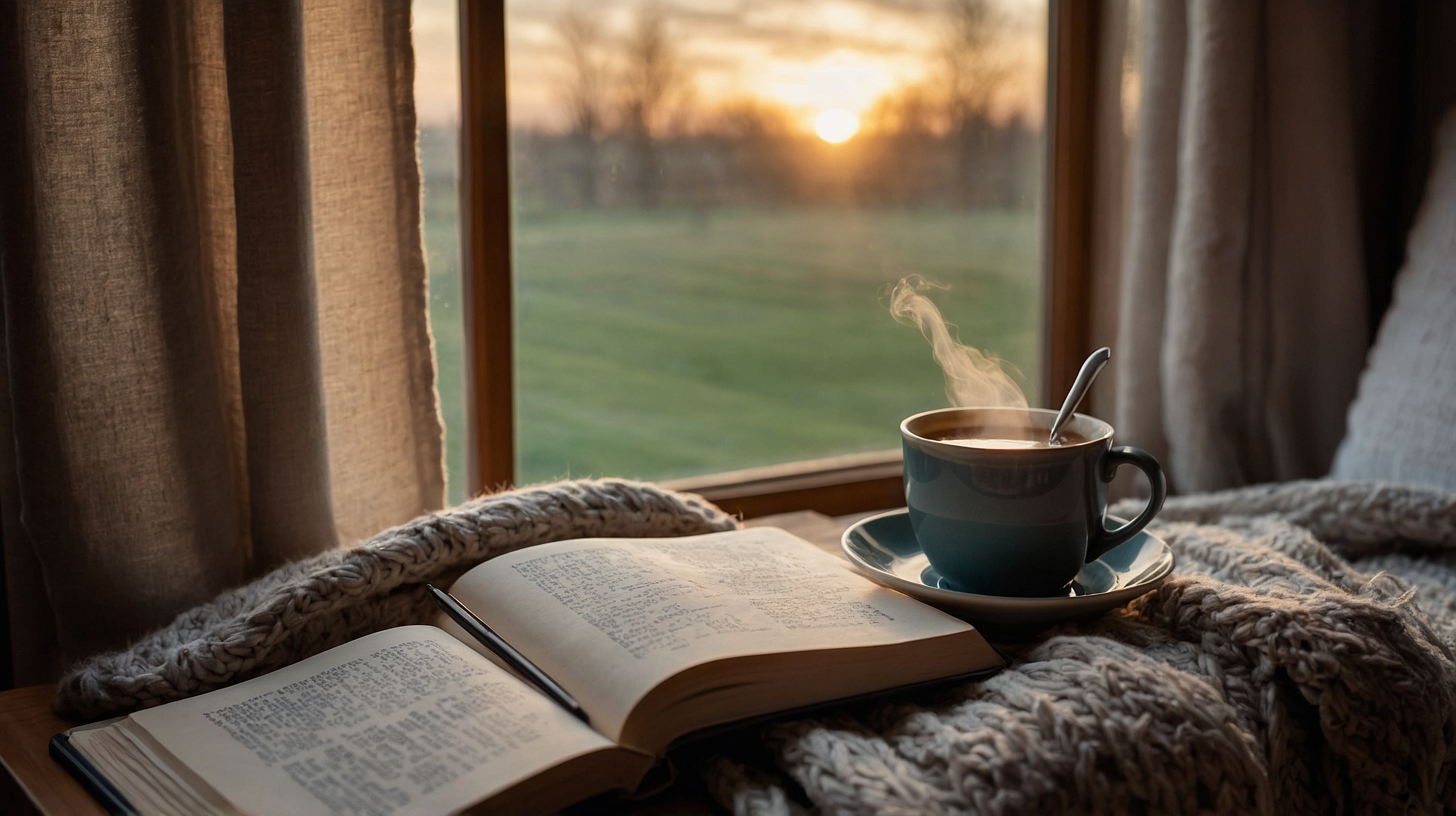There’s something a little heartbreaking about standing in a sparkling modern kitchen, fridge full, and still feeling like you have “nothing to eat.” I used to think it was just me—scrolling past endless recipe videos, ordering takeout because it felt easier, and wondering why, despite all the conveniences we have today, cooking sometimes felt like another item on a never-ending to-do list. Somewhere along the way, making a meal turned into an obligation, not a comfort.
And yet, I kept thinking about my grandma.
How she would hum quietly while peeling potatoes. How the kitchen smelled like fresh bread or roasted chicken. How meals weren’t just food—they were something softer, deeper. A pause in the day. A reason to gather. A way to say, “You’re loved.”
It made me realize: somewhere between the demands of modern life and the pressure to be efficient, we lost something. Cooking became about speed and perfection—30-minute meals, flawless plating, “hacks” to make it all faster—rather than connection or nourishment.
Maybe you’ve felt it too: that quiet longing for something slower, simpler, more real.
That’s why I decided to start cooking like my grandma. Not because I needed another project or aesthetic hobby. But because I needed to feel human again. And maybe, just maybe, you might want that too.
When I first started thinking about changing how I cooked, I caught myself bumping up against a lot of internal resistance.
Wasn’t I supposed to be maximizing my time? Aren’t we told that meal prep, quick fixes, and convenience foods are “self-care” because they save us energy? Why would I choose to spend more time in the kitchen when life already felt overwhelming?
But deep down, I knew the kind of exhaustion I was feeling wasn’t going to be solved by another shortcut.
It was a deeper hunger—a need for grounding, for slowness, for meaning.
Our culture teaches us that efficiency equals freedom. If you can do things faster, you’ll have more time for what matters…right? But what if the doing is what matters?
When I watched my grandma cook, there was no rush. No multitasking. She wasn’t “meal prepping” to save time later—she was living in the moment, creating something beautiful in the middle of an ordinary day. She didn’t need six different sauces from scratch or a four-course dinner. Sometimes it was just beans simmering on the stove and cornbread baking in the oven. And somehow, it felt like magic.
I think sometimes we chase convenience because we’re scared we don’t have enough—enough time, enough energy, enough skill. But what if we already have everything we need, right here?
Even if the stew is simple, even if the bread falls a little flat, even if the kitchen gets messy and the kids are whining and the dishes pile up—it’s enough.
Not because it’s Instagram-worthy. Because it’s real.
At some point, I realized that the old way—the slow, messy, soulful way my grandma cooked—wasn’t about technique. It was about presence.
Cooking like my grandma isn’t about rejecting all modern conveniences or pretending life isn’t busy. It’s about making different choices inside that busyness. Tiny acts of rebellion against a world that tells us speed is everything.
For example, I started using my hands more. Mixing dough with my fingers instead of using a mixer. Tearing lettuce instead of chopping it perfectly. Smelling spices before tossing them into a pot. These tiny, sensory acts reconnected me to the food, to myself, to the people around me.
I also stopped seeing cooking as a task to “complete” and started seeing it as a rhythm to enter. Some days it’s still messy and chaotic. But that’s the point. Life is messy and chaotic. Cooking this way reminds me I’m allowed to show up imperfectly.
It’s not about recreating some romanticized version of the past, either. My grandma had hard days. She got tired. She probably would have loved a dishwasher and grocery delivery!
But what she did, intentionally or not, was create space for nourishment that went way beyond calories. She taught me that feeding people (including yourself) can be an act of love, not obligation.
And honestly, when you start looking at it that way, cooking becomes a lot less intimidating and a lot more beautiful.
So what does this actually look like if you’re not living in a cottage with a vegetable garden out back (because same)?
It looks like choosing one or two small shifts that feel good and real for you, wherever you are right now.
Here are a few that helped me:
- Slow down the process, even just a little. Light a candle before you start cooking. Play music you love. Let chopping vegetables take an extra few minutes. Make it an experience, not just a task.
- Cook one thing completely from scratch now and then. Maybe it’s a simple soup or a loaf of bread. Not because you have to—but because it’s deeply satisfying to create something from start to finish.
- Use all your senses. Smell, taste, touch, listen. Notice the sizzle of onions, the roughness of potato skins, the scent of garlic on your fingertips. Be in it.
- Invite others into the process. Cooking like my grandma often meant kids underfoot, neighbors stopping by, pets begging at her feet. It wasn’t Pinterest-perfect. It was community.
- Forgive the imperfections. Some meals will burn. Some won’t look pretty. Some days, you’ll still grab takeout. That doesn’t mean you’re failing—it means you’re living.
You don’t have to overhaul your whole life. You don’t have to cook “perfectly.” You just have to show up, however you can, and let it be enough.
Sometimes, when I’m stirring a pot or kneading dough, I think about how my grandma’s hands once did the same thing—and how her mother’s did, and her mother’s before that.
It’s a lineage, not of perfection, but of care. Of people who slowed down long enough to nourish themselves and others.
Cooking like my grandma reminds me that intentional living isn’t about controlling every moment or doing everything “right.” It’s about being in the moments we’re given, even when they’re messy or ordinary.
So maybe tonight, you light a candle and cook something simple. Maybe you burn the rice a little. Maybe you sit down anyway, breathe deep, and know that you’re part of something bigger.
And maybe, just maybe, you’ll taste a little bit of that forgotten magic too.


